Search Results
Showing results 1 to 15 of 15
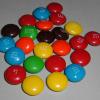
Radioactive Decay of Candium
Source Institutions
In this simulation, learners use M&M™ candy to explore radioactive isotope decay.

Dunking the Planets
Source Institutions
In this demonstration, learners compare the relative sizes and masses of scale models of the planets as represented by fruits and other foods.
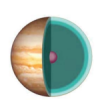
Jiggly Jupiter
Source Institutions
In this activity, learners build edible models of Jupiter and Earth to compare their sizes and illustrate the planets' internal layers.

Edible Earth
Source Institutions
In this activity, learners make a model of the solid Earth's layers that's good enough to eat! Learners use tasty foodstuffs to simulate Earth's inner core, outer core, mantle, and crust.
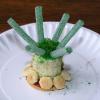
Build a Coral Polyp
Source Institutions
In this activity, learners build one or more edible coral polyps and place them together to form a colony.
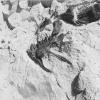
Fossil Dig Site
Source Institutions
In this activity (located on page 5 of PDF), learners work in groups to create dig sites for display.

Sustainable Fishing
Source Institutions
In this activity, learners use a model for how fishing affects marine life populations, and will construct explanations for one of the reasons why fish populations are declining.

Touch Down
Source Institutions
In this design challenge activity, learners build a shock-absorbing system that will protect two “astronauts” when they land.

We all Scream for Ice Cream
Source Institutions
In this activity, learners observe how salinity affects the freezing point of water by making and enjoying ice cream.
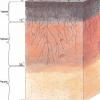
Edible Soil
Source Institutions
In this yummy activity about soil (page 9 of PDF), learners will create layers of soil using food. They will learn about the composition and role of each layer.
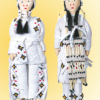
Plenty on the Plains
Source Institutions
In this activity, learners compare the ways of life of Plains Native Americans who hunted and moved frequently to follow the buffalo herds, and Native Americans who farmed and lived in more permanent

Chocolate Lava
Source Institutions
In this yummy earth science activity (page 5 of the PDF), learners use fudge to learn about different kinds of lava.

Cook with a Solar Oven
Source Institutions
In this activity, learners make their own solar oven to bake s'mores and learn about how solar energy is absorbed on Earth.
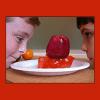
Space Jell-O
Source Institutions
Albert Einstein proved that space bends around anything that has mass. This activity uses Jell-O's ability to bend around objects as a model for space bending around planets and stars.

Wintergreen
Source Institutions
In this outdoor, winter activity, learners find living green plants under the snow and determine the light and temperature conditions around the plants.
